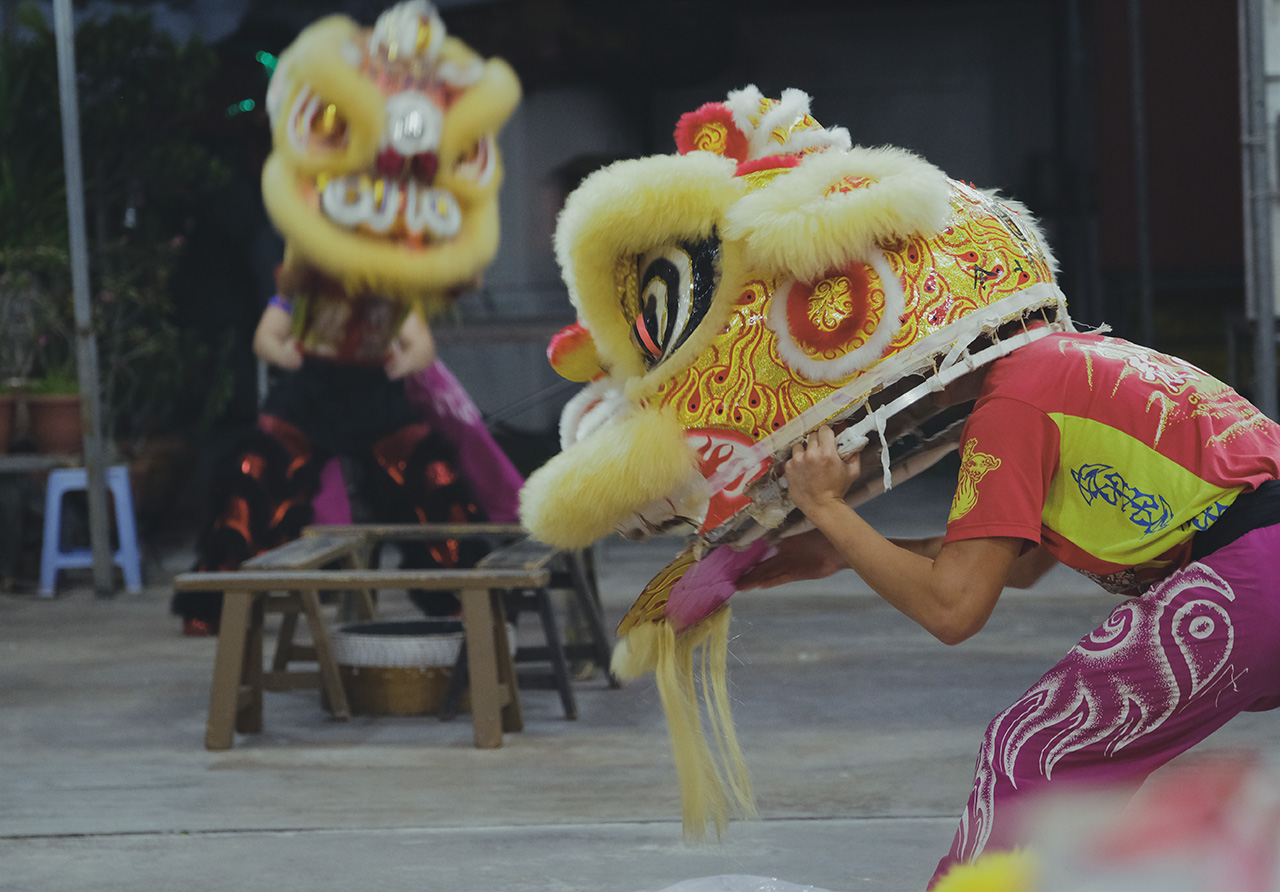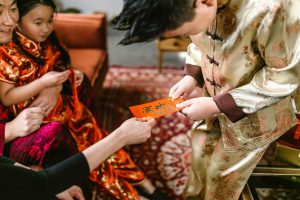The problem? Lion dances won’t be around for much longer.
The verdict is out: The fountain of youth is running dry for Singapore’s lion dance community. Despite increased demand for lion dance performances, local troupes have struggled for years with a lack of new incoming talent.
For one troupe, however, there is still hope.
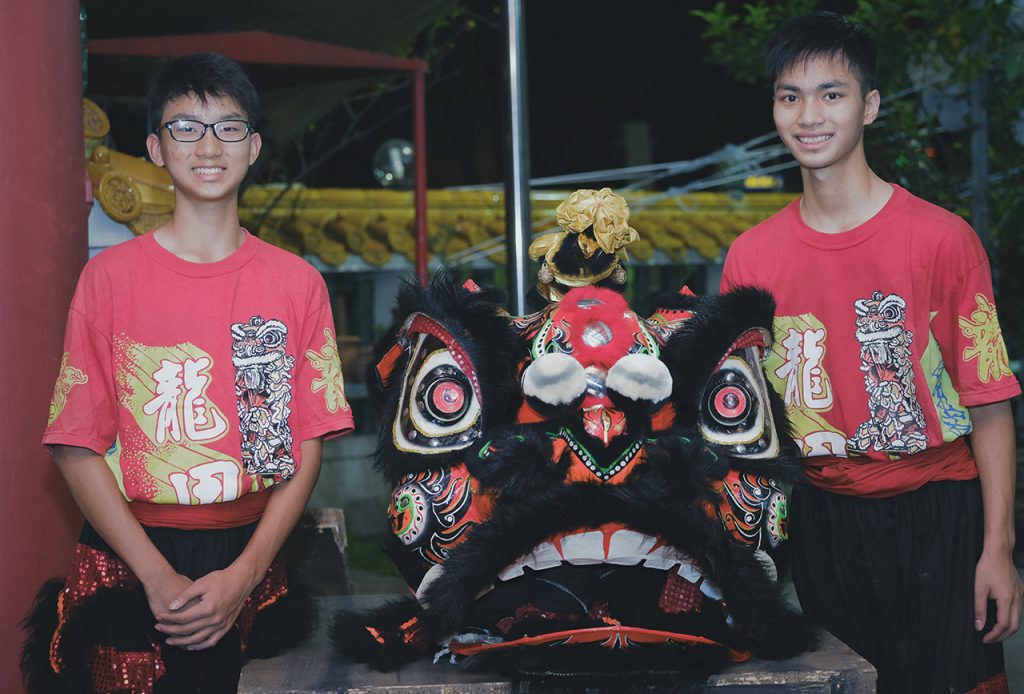
It’s 10 PM on a Friday night and while most boys their age would be at home playing Mobile Legends by now, Nick and Nigel are hard at work at the Hiang Tong Keng Temple practicing their lion dance routine.
With Chinese New Year around the corner and hundreds of performances already lined up, it has to be perfect.
“Usually it’s the younger members who come for training,” says Nigel. “When they [the older members] were young, they trained intensively.” Now as the younger, lighter, faster and fitter members of the troupe, the responsibility of performing falls on Nick’s and Nigel’s shoulders.
“They have finished their struggle and now have their own jobs and lives. So it’s now our turn to struggle.”
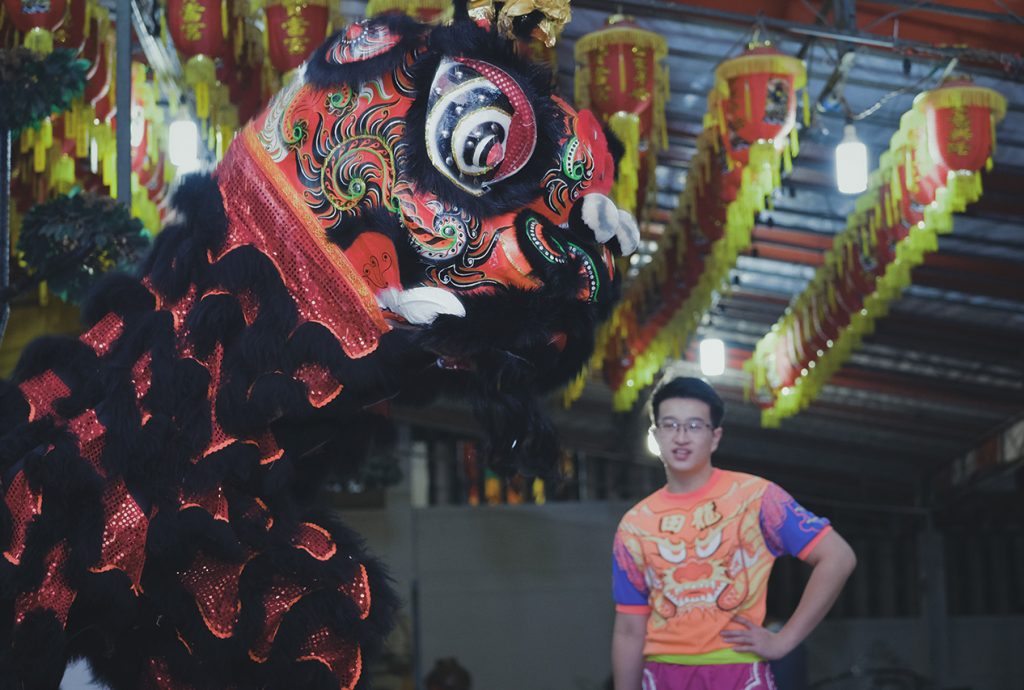
Where most consider the clash of the cymbals and banging of the drums a racket, it is music to their ears. Many might also be clueless about the cultural and historical roots of lion dance, but they’ve made it a point to research and educate themselves on the art form.
It all started when Nick was 3 and his grandmother brought him to see his first lion dance performance. “From then on, he was hooked,” says Jolene, his mother.
He would also spend countless hours watching CDs of lion dance competitions and later emulate what he saw, “Jumping around on the sofas and running around on his own,” Jolene recounts.
After joining his primary school’s lion dance CCA, Nick would come home after trainings and share with Nigel whatever he had learnt. Wanting to follow in the footsteps of his older brother, Nigel too began to develop an interest in lion dance.
What led the brothers to Long Tian was the closure of Nick’s CCA when he was in Primary 6. There were simply not enough students interested in the art form.
“I had nowhere to go,” says Nick. “Then I went online and found Long Tian.”
Despite coming in at a young age (Nick was just 12 and Nigel, 9), they were a welcome addition to the troupe. In Long Tian, where 80% of its members are in their thirties or older with full-time jobs, young dancers like Nigel and Nick are crucial in ensuring the troupe lives to dance another day.
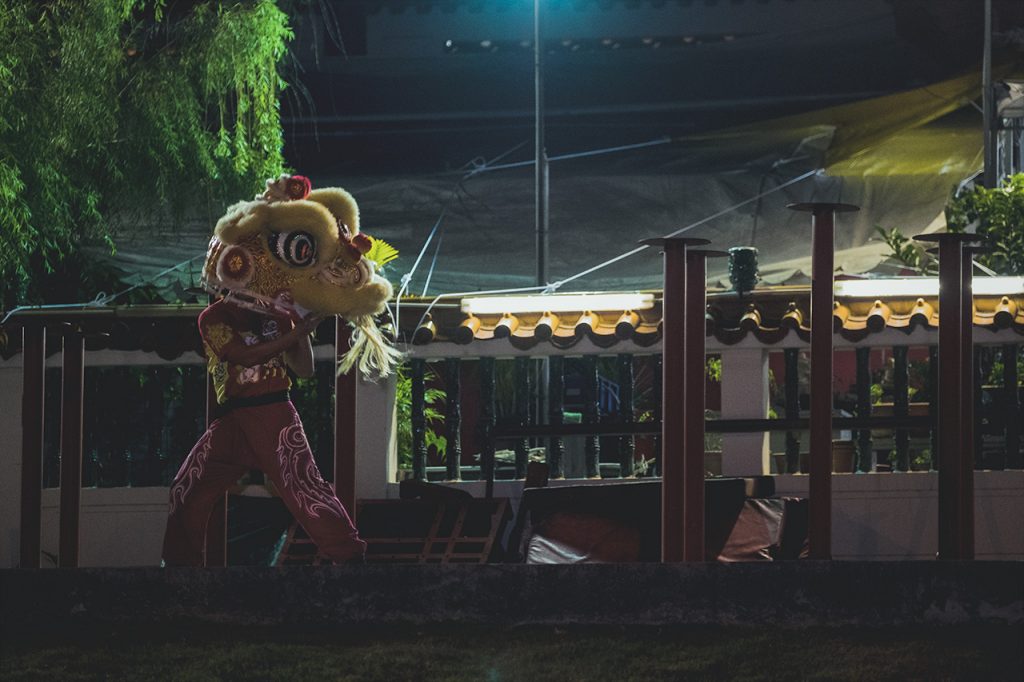
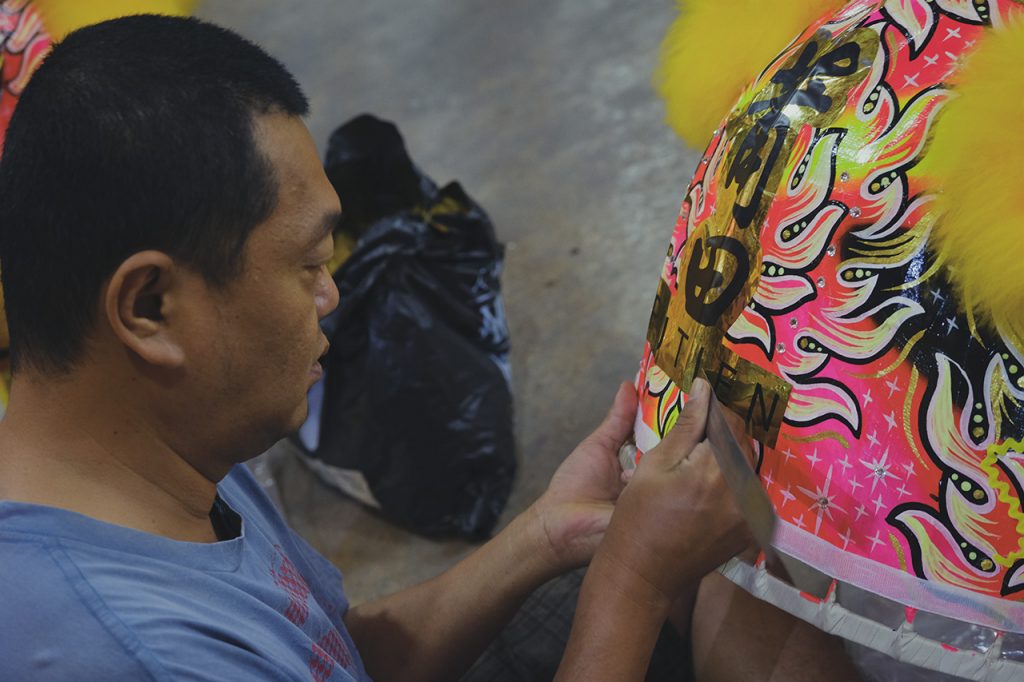
For starters, lion dance doesn’t exactly have the best reputation.
In the past, lion dance troupes were notorious for their ties with secret societies, triads and violent gangs. “If you look at the history of Singapore, yes it was like that last time, but that was in the early 1950s, even before we were born,” says Shaun.
According to Shaun, most troupes that were around during that time have since been disbanded and/or rebranded under new names so as to distance themselves from their past associations.
Moreover, all existing lion dance troupes are now required to register with ACRA (Accounting and Corporate Regulatory Authority), allowing the State to better monitor their activities.
Long Tian, having been founded much later in 1992, bears no connection to any criminal activity. Even the troupe’s oldest member, a 70-year-old man is no former-triad member but instead a the general affairs manager who oversees the troupe’s logistics.
However, stereotypes and stigmas die hard.
“People always say lion dance creates bad kids,” Shaun complains. “Nobody says that it creates good kids.”
Nick and Nigel would beg to differ.
Given that there are currently 4 times more adults in Long Tian than there are teenagers, every member dotes upon Nick and Nigel as if they were their own younger brothers.
Once, when Nigel fractured his elbow during training, his seniors were the ones who brought him for treatment and who subsequently took care of him.
When it comes to things like smoking, Chan, Long Tian’s head coach, fiercely reminds his troupe’s younger members that they should only smoke if they’re earning their own money. “Don’t buy cigarettes with your parents money. Not good,” he scolds.
Even Jolene, who initially had her misgivings, has since learnt to let go and trust not only in her sons, but in herself.
“For parents who think it’s not a good idea to put their kids in lion dance because of the stigma, it’s not. We feel like it’s more of our upbringing to them, if we teach them right, it’s fine.”
Contrary to how most of us tend to perceive lion dancers, Nick and Nigel aren’t gangsters or school dropouts. They’re full-time students, mild-mannered and soft-spoken. They don’t smoke, use profanities or sport tattoos; nothing about their demeanour and appearance seem remotely deviant.
And truth be told, they’re probably too busy to get into trouble.
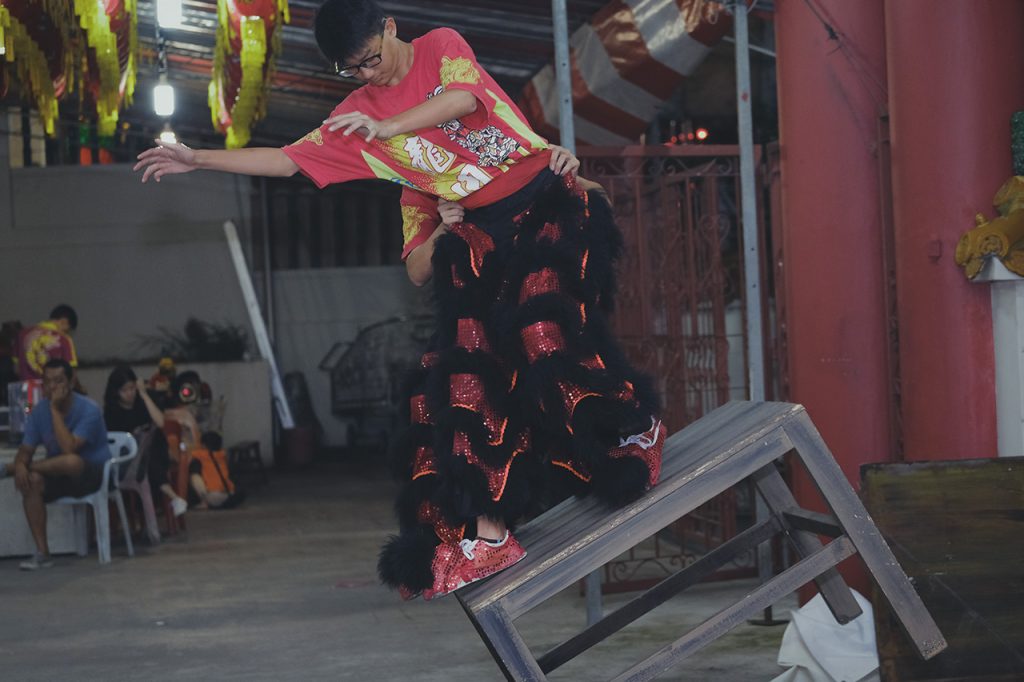
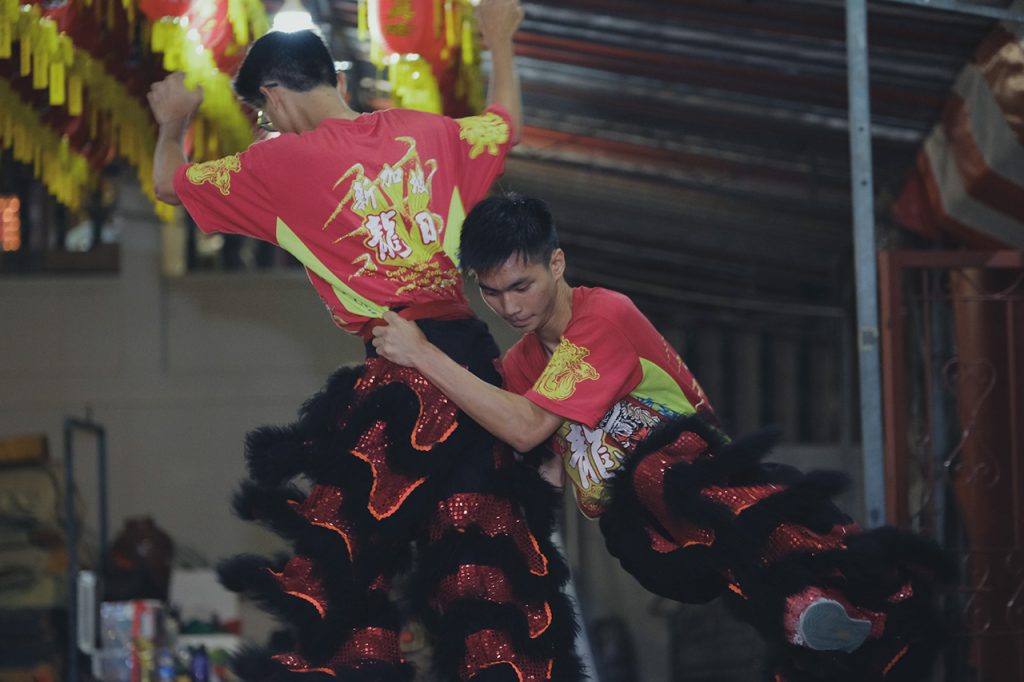
During busy periods like Chinese New Year, the boys can be expected to spend 14 out of 15 days performing, and anywhere between 1 to 20 performances each day.
From May to September, as the troupe prepares to participate in the Ngee Ann City National Lion Dance Championships—the most prestigious in Singapore—they can spend up to 5 days a week just training.
Both brothers share with me horror stories of how during the troupe’s peak periods, they’d leave home at 6 AM only to come back at 12 AM after a whole day of schooling, CCA practice and lion dance training. Even then, they wouldn’t go to sleep straight away but instead stay up till 2 or 3 AM in the morning to finish their homework.
“It’s very, super tough,” says Nick. “I used to be jealous of other people in school because they got so much free time to study so much.”
Still, they never gave up. “It’s difficult,” he tells me. “But if you like something and enjoy it then it’s also not that difficult.”
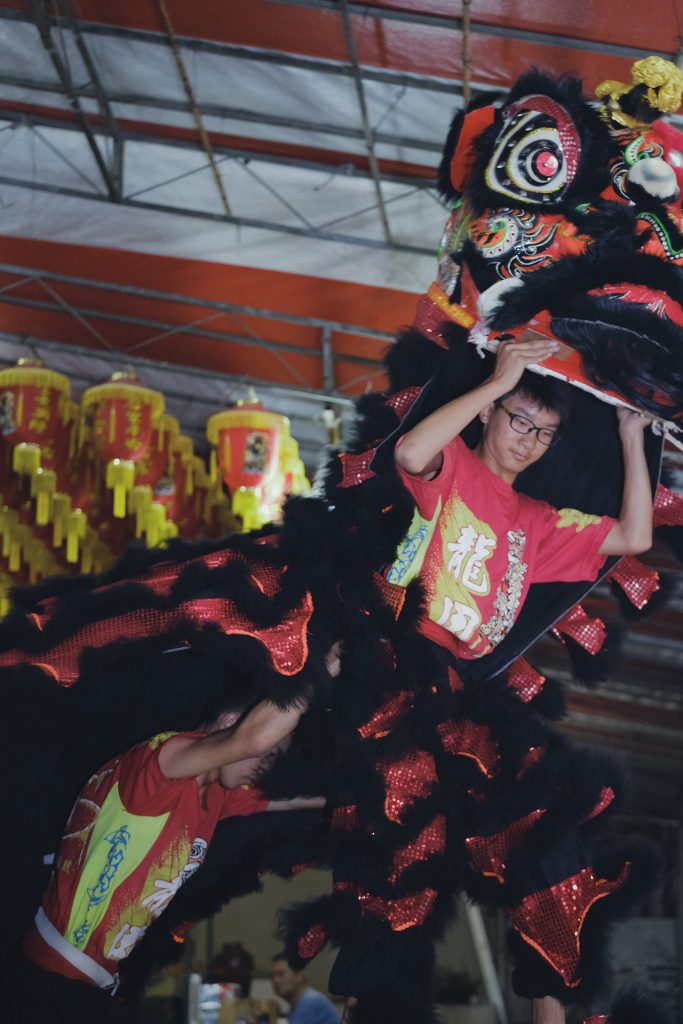
As a troupe, Long Tian is one of the top record holders in Singapore at the Ngee Ann City championships. As a pair, Nick and Nigel have placed 4th and 2nd in past years.
Still, Nick and Nigel are hungry for more.
“I don’t mind second place but I want to try harder,” says Nigel. “I’m looking to get first, that’s the ultimate goal right, you can’t just go into a competition and not want first.”
“I want to be the Lion King,” chimes in Nick cheekily.
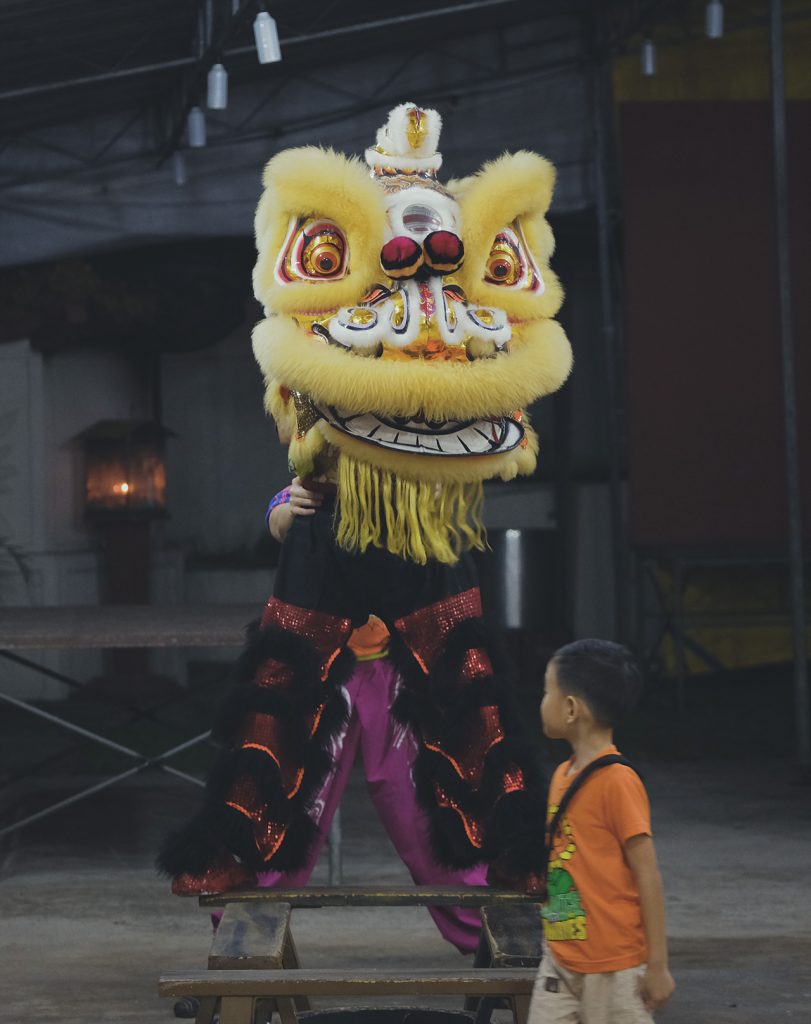
For Jolene, she’s seen her sons mature and become more independent. Having spent time with members of the troupe who are much older and experienced has helped them “grow up faster.”
She also believes that their Chinese has improved. “This is after all a Chinese tradition,” she reminds me, and insists that the coach only speak to her sons using Chinese and not English.
For Nick, developing a sense of humility has been his greatest takeaway thus far while for Nigel, he’s just grateful to have the support and trust of his parents in doing something he loves.
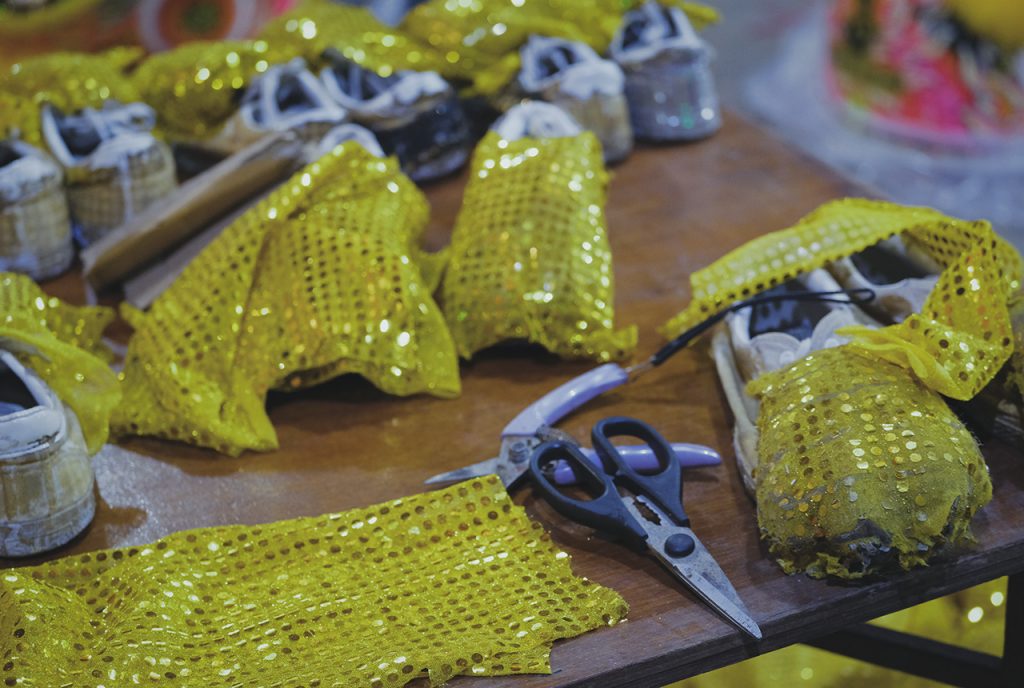
From the driveway, their parents approach—each holding a paper bag with about twenty hotdogs inside. They’ve bought them for the troupe to eat as a snack after their training.
In about 30 minutes time, Nick and Nigel board their father’s car and head for home.
Tomorrow, they will do it all over again.

